200 Cities, 2,729 Teams Building a Better Universe: A Recap of Space Apps Weekend 2018
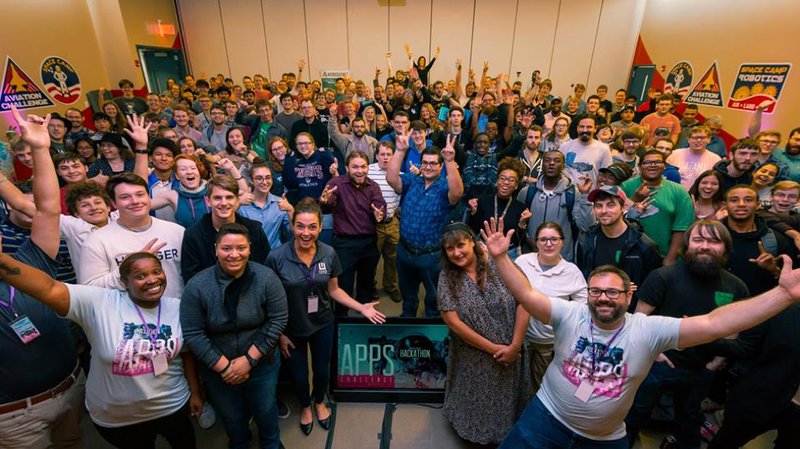
NASA’s 2018 International Space Apps Challenge is in the books, and what a weekend it was!
At 200 locations in 75 countries, 17,924 participants took on the Space Apps mission, forming 2,729 teams to submit 1,395 total projects in response to 20 challenges designed by NASA to solve problems here on Earth and in Space.
The evolution of Space Apps has been out of this world! While our 2017 event had the most participants to date, Space Apps 2018 saw a record number of locations and countries, as well as teams (35% more than in 2017) and projects (nearly 30% more completed than last year)!
For many, the Space Apps experience began with a special message from Astronaut Drew Feustel from aboard the International Space Station (I.S.S.), 250 miles above Earth’s surface. Feustel likened the international collaboration on the I.S.S. to the global Space Apps network that produces the world’s largest hackathon. In that same vein, the hashtag #SpaceApps reached more than 49 million people* this year, featuring stories of Space Apps innovation worldwide.
This international collaboration included video chats from the Global Organizing Team at NASA Headquarters and the Space Apps 2018 Mainstage in Huntsville, Alabama to cities far and wide, including Osaka, Japan; Perth, Australia; Taipei, Taiwan; Moscow, Russia; Brescia, Italy; Addis Ababa, Ethiopia; and Lusaka, Zambia.
All around the world, we saw the Space Apps experience come to life.
Huntsville, Alabama, U.S.A.
As hosts of the 2018 Space Apps Mainstage, Space Apps Huntsville took place on the campus of the United States Space and Rocket Center. Seeing the life-sized Saturn V rocket and the Space Shuttle inspired participants to explore the limitless opportunities of space exploration. The history and culture of Huntsville, known as “The Rocket City,” also supported a dynamic environment of creativity and teamwork.
Lead organizers from Urban Engine (Huntsville’s prized innovation incubator), and Sarah Hemmings of the Space Apps Global Organizing Team kicked off the Mainstage event. Over the course of the weekend, each of the 36 teams of participants utilized a unique strategy for solving complex problems on Earth and in space. They came prepared with laptops, programming tools, snacks, pillows, and sleeping bags to work through the night.
On the final day of the hackathon, the Huntsville team celebrated finalists and awarded winners at the Davidson Center for Space Exploration. Winning teams presented their remarkable projects, which included a game designed to educate players about space and a personalized cryosphere webapp, to name a few. The collaboration at both the participant level and sponsor level made Space Apps Huntsville a true success.
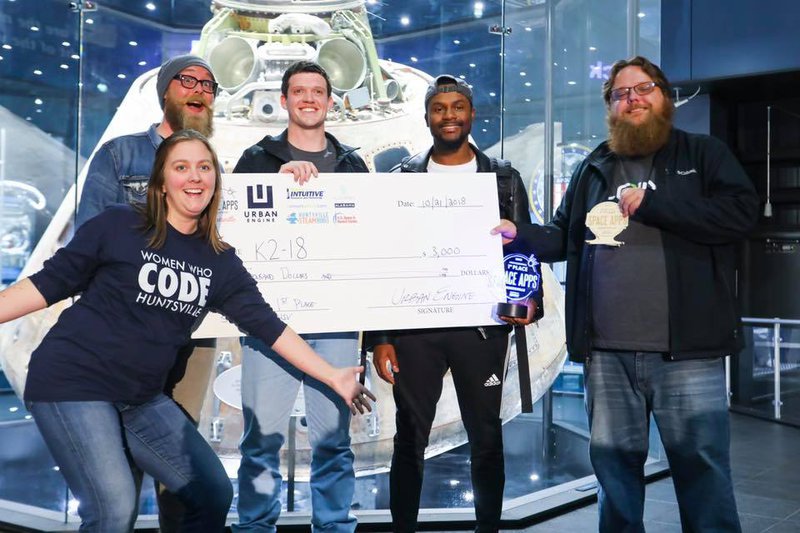
Osaka City, Japan
While participants worldwide focused on a number of challenges, including those aimed at better preparing citizens for natural disasters, for Space Apps Osaka City, the need was all too real. Prior to Space Apps 2018, Typhoon Jebi, Japan's most powerful storm in 25 years, damaged the city. Nevertheless, as host Miyuki Toriyama put it, the city's "heart and soul are fine.” The event pushed forward and ultimately welcomed a spirited bunch of more than 30 people, including one participant from Huntsville, Alabama, home to the 2018 Mainstage event.
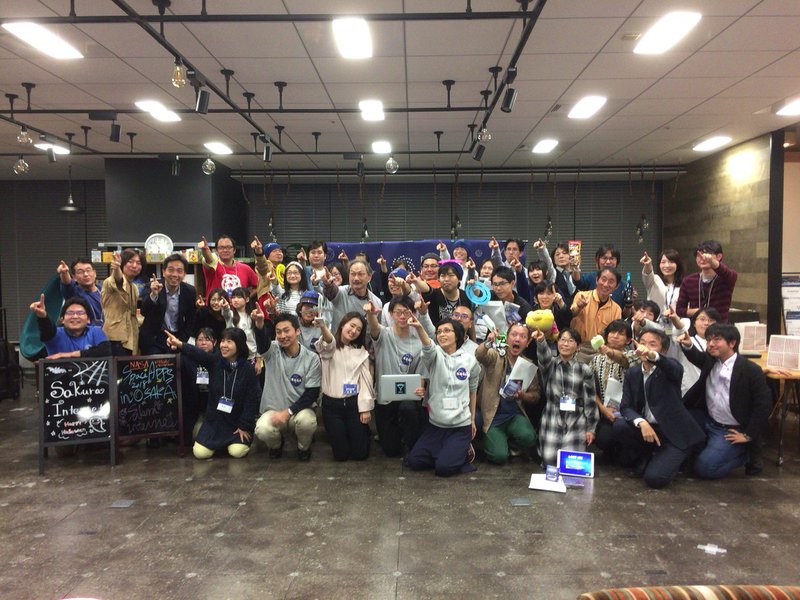
New York City (NYC), New York, U.S.A.
Space Apps NYC 2018 lived up to the legacy of Space Apps NYC events. While some faces have changed over the years, there has been continuity in the organizing team, which has been serving NYC space hackers since the inaugural Space Apps in 2012. The team hosted a series of empowering events in the lead up to Space Apps 2018 with Google at Silicon Harlem and at SAP NextGen.
Space Apps weekend kicked off in NYC by featuring a video Question & Answer session with Astronaut Nicole Scott, who left participants with an inspiring opening message, remarking “we all need to be crew and not passengers.” This spirit rang true through the hackathon. When it was all said and done, NYC’s global judging nominations went to SMSAFETY, an SMS disaster bot designed to track pre- and post-disaster states of people affected by extreme weather events, and InstaCO2, an artificial intelligence-powered carbon footprint analyzer. More importantly, it was an enjoyable weekend for all in NYC who joined in on the global collaboration!
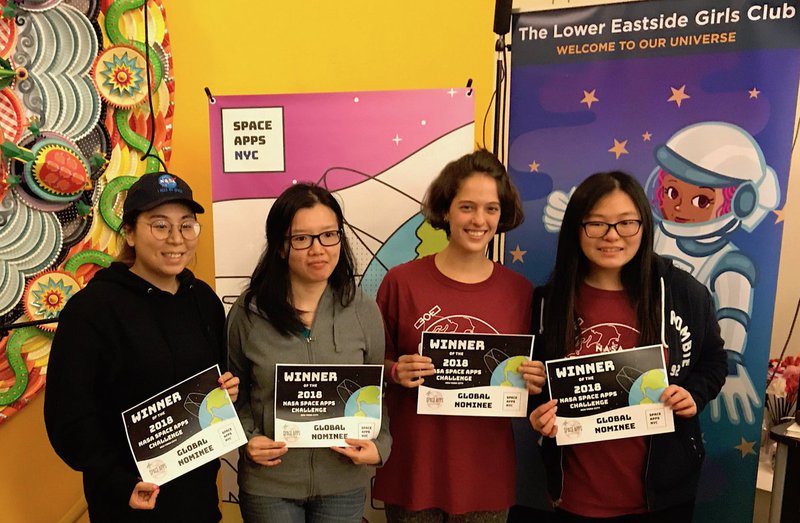
Nairobi, Kenya
In its fifth year, Space Apps Nairobi was supported again in full force by the local community. The event, hosted by IBM, kicked off with Information Technology club meetings at Jomo Kenyatta University and Zetech University. These events were well attended, engaging more than 250 students, who came to learn about Space Apps and this year’s challenges.
Teams formed to create six projects, including Uguzamedics Awareness, an app that detects local threats; Young Tech Innovators, a story map and documentary about space exploration; and Sparse, a webapp that shows a countdown to the next rocket launch. A representative of the Office of the Deputy President of Kenya gave an inspiring talk about the importance of data and innovation, challenging participants to use technology to address local and global problems.
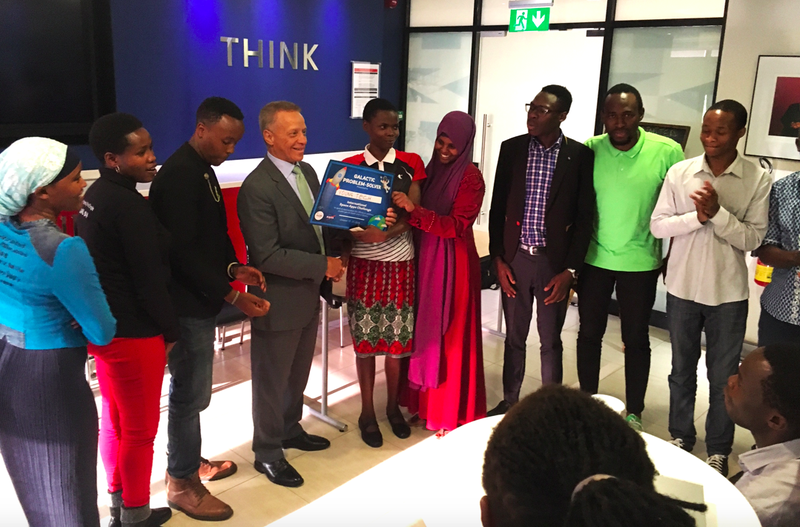
Skopje, Macedonia
Space Apps Skopje is the longest-running Space Apps event in the Balkan region and has historically had a large turnout from among the population, as well as generated global winners. This year, half of the participants were female. Among the attendees were several of the sponsors, including the U.S. Embassy in Skopje.
A unique feature of the Skopje event is that the local winner(s) will be invited to join a six-month acceleration program, entitled Launchpad. This allows the solution(s) to live on beyond the Space Apps hackathon, as it is matched with a Macedonian company that is interested in adapting the solution to their local needs. So far, at least a couple of Space Apps winners have gone off to form companies from their winning solutions—a big feat for young people in Macedonia.
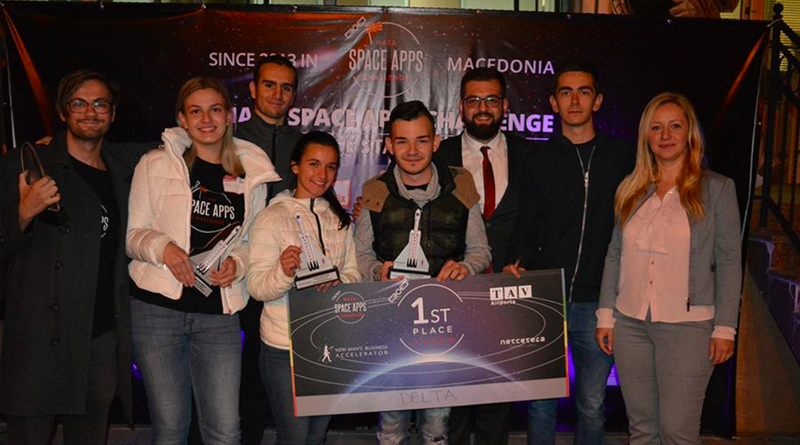
Addis Ababa, Ethiopia
Space Apps Addis Ababa celebrated their first Space Apps Challenge in the country’s history. Two teams — Be Hold, Winter is Coming and Land of Origins — were selected as global nominees, both presenting solutions that used NASA’s open data while also managing to serve a purpose on the local level in Ethiopia. Ethiopia’s Minister for Innovation and Technology, Dr.-Ing Getahun Mekuria Kuma, and State Minister for Innovation and Technology, Dr. Shumete Gizaw, joined the hackathon’s closing award ceremony to recognize the participants and stress the need for additional disruptive innovation and development of tech skills in the country.
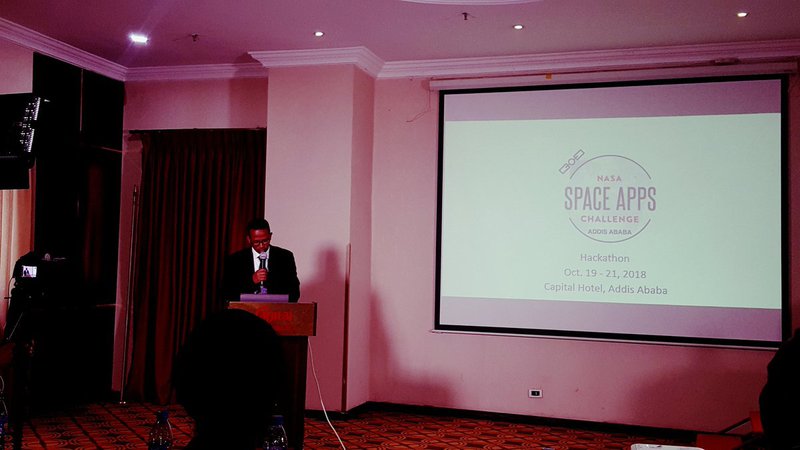
Pristina, Kosovo
At Space Apps Pristina, the world’s largest hackathon has a special significance. Kosovo is the youngest country in Europe (only 10 years old), and yet in the fourth year of Space Apps Pristina. This event is popular. The U.S. Embassy is doing a lot to encourage the information and communication technology (ICT) sector in Kosovo — a growing industry — and therefore is a big supporter. As such, at the event, the organizers announced a new scholarship for the dozen or so women that participated in the event to encourage women in the ICT and STEM sectors. In Kosovo, it is apparent that Space Apps plays a role in educating and attracting young people to science and technology.
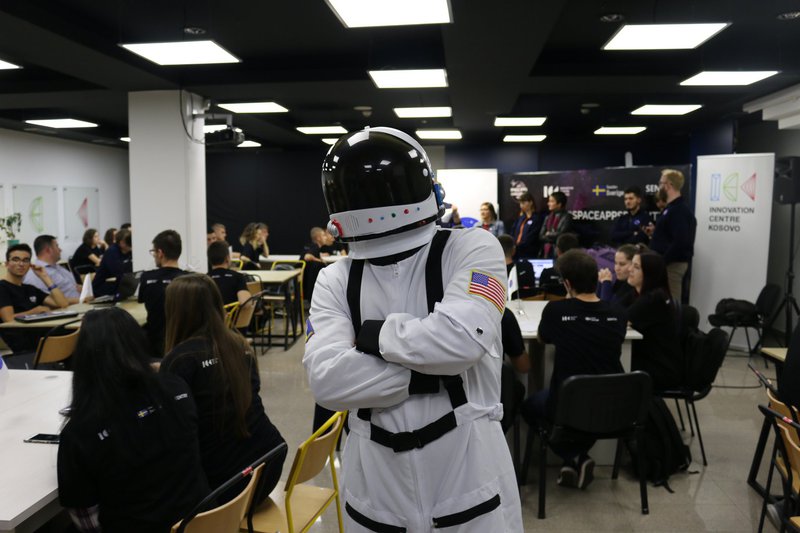
Whether you were a participant, a host, a judge, a subject matter expert, or a livestream viewer, we want to thank you for being part of the Space Apps community. We are looking forward to what 2019’s event has in store! Stay tuned to spaceappschallenge.org and to Twitter and Facebook for the latest regarding next year’s Space Apps.
Special thanks to Matt Scott, Sarah Hemmings, Jewell Porter, Blake Garcia, Chad Badiyan, Lena Delchad and all the Space Apps locations mentioned here for their contributions to this article.
*Hashtag data is for the timeframe between September 24–October 24 on Twitter and Instagram.